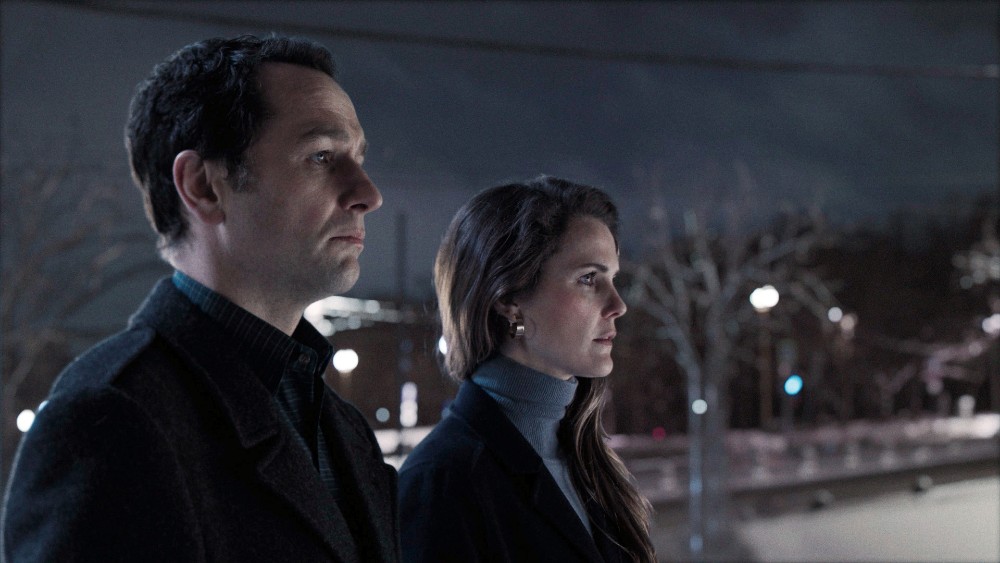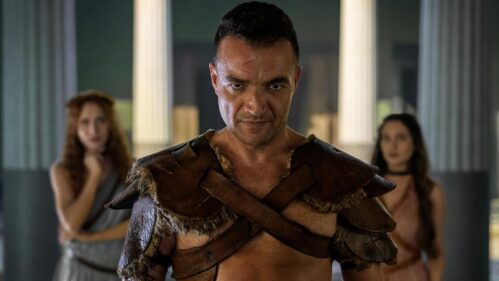Let’s say you had to leave home.
You have to leave for a great job, one that would ostensibly bring pride to your family and fellow countrymen. You might not see them for a long time. You might not see them ever again. Before you leave, you get married to someone you barely know. It’s a marriage of convenience, but nevertheless, it’s a partner, someone with whom to share your professional and personal anxieties. Much later, long after you’ve traveled halfway across the world and entered an unfamiliar society, the convenience falls away and something resembling love takes over. After all, they stood by your side, and they know where you came from.
You establish roots, maybe in a suburb surrounded by strange people who you hardly trust. You have two kids who never knew the struggles you faced way back when in a far-away country. You love them, but you worry that they’ll grow up with values you don’t share, let alone recognize. Meanwhile, the job that you once loved has slowly become a grind, and has turned you into someone you don’t even know. The kids grow up. Parental concerns enter the foreground. You grow distant from your partner, as you quarrel over how best to instill the children with the beliefs and principles you ostensibly hold dear, many of which go against the established cultural fabric of this new land. You privately worry that they’ll never understand you.
You reminisce about home, but you realize that you don’t really remember it. After all, you were young when you left and most of the ties have been cut. You accept that this is your new home. Maybe you make some friends and take up a hobby. Maybe you settle into a comfortable rhythm. On the other hand, your partner harbors doubts, and secretly longs for a time when the kids are grown and you both can return to the land of your people. Maybe you don’t want to go back. Maybe you like it here.
But as much as you like it, and as hard as you try, you know that you’ll never be one of them. As long as you can’t reconcile the culture you were born into with the culture you adopted, your identity will forever be adrift, and you’ll always wonder who you really are.
This is a classic immigrant story. This is a classic American story. This is “The Americans'” story.

“The Americans,” Joe Weisberg and Joel Fields’ Reagan-era spy drama that completed its six-season run last week, will likely go down in television history as one of the definitive shows about marriage. Weisberg and Fields effectively used espionage as a metaphor for casual deception in relationships, leveraging the series’ depiction of tradecraft to examine how people frequently lie and betray those they love, often without realizing it. It’s a potent idea with far-reaching implications, which Weisberg and Fields extended to parenthood, institutional bureaucracy (the FBI, the KGB, the Russian embassy, etc.), and, befitting the series’ premise, international relations.
However, Weisberg and Fields wove another thread into “The Americans'” narrative, one that flew under the radar but nevertheless permeated almost every aspect of the series: the story of first-generation immigrants navigating American waters while struggling to maintain their connection to their original culture. The series used Philip and Elizabeth Jennings (Matthew Rhys and Keri Russell), KGB officers posing as a traditional American couple, as vessels to explore issues of acculturation, specifically how different worldviews can foment through shared experiences living under a dominant culture.
Elizabeth functions as a reluctant integrator, someone who adopts American cultural norms but only because she’s required in order to maintain her cover. She resents American life, not only because of her political obligations, but also because her communist upbringing stands in sharp opposition to the United States’ materialistic, staunchly capitalist society. Elizabeth grew up in poverty in the aftermath of the Second World War; she never knew her father, who fought in the War and was shot for trying to desert his post, and was raised by her strict mother, who longed for her daughter to serve her motherland. Recruited by the KGB as a teenager in the midst of the Cold War, Elizabeth was taught to infiltrate America to aid her home country, superficially accepting their values, but never allowing them to enter her heart.
Before their daughter Paige (Holly Taylor) learns the truth about her parents, Elizabeth would subtly undercut American teachings so as to guide her children to her way of life. As early as the pilot, she mocked Paige’s social studies’ professor’s cleft lip after her daughter explains she’s writing a paper about how the Russian government cheats on arms control. When their son Henry (Keidrich Sellati) learns about the Americans’ space program, Elizabeth insists that, “the moon isn’t everything” and that “just getting into space is a remarkable achievement,” alluding to Soviet cosmonaut Yuri Alekseyevich Gagarin’s achievement of being the first human being to travel into space. When Philip insists that she can’t stand watching their kids become American, she snarls at him, “I’m not finished with them yet.”
Her mission was always a lost cause for Henry, a child neglected by his parents and raised by pop culture and, ironically, FBI agent Stan Beeman (Noah Emmerich), a surrogate father figure who largely failed his biological son, Matthew (Daniel Flaherty). But Elizabeth ultimately made inroads with Paige by capitalizing on, and eventually manipulating, her activist heart, which, ironically once again, blossomed during her time in the church. Paige’s initially distressed attitude towards her parents’ occupation eventually morphed into a genuine interest in becoming a Soviet sleeper agent, a baldly obvious attempt to become closer to her family. Yet, in the final season, when Paige officially becomes a spy-in-training, she eventually clashes with her mother over her continued deception and, especially, her emotional manipulation of innocent lives. She might understand and agree with the ideological underpinnings of her mother’s work, but she can’t stomach the ends-justify-the-means behavior it demands. A true believer, Elizabeth swallows almost everything the KGB tells her because she lives for a purpose greater than herself. Paige wants to live like that, but she still retains an individualist mindset typical of second-generation Americans.

Meanwhile, Philip is a not-so-reluctant assimilator, someone who gladly assumes American cultural norms despite his treasonous profession. In the pilot, after he and Elizabeth learn that Stan Beeman has moved across the street, he quickly suggests defection as a possible option for their family. When Elizabeth balks, he finally comes out and says what he’s clearly believed for a long time: “America is not so bad. We’ve been here a long time. What’s so bad about it?” It neatly encapsulates Philip’s internal conflict as well as a classic immigrant dilemma: Will you lose your original culture by embracing the adopted culture? For Elizabeth, this is unthinkable, but for Philip, whose doubts about their mission and his distaste for KGB tactics grows over the course of the series, it might save his life.
Philip’s reliance on uniquely American ventures to help him with daily life cleanly separates him from Elizabeth. He regularly attends EST meetings, a self-help group seminar that teaches him how to face his repressed memories and to openly discuss his emotions. Though Elizabeth objects to EST, especially after she finally attends a meeting and sees it as a profit-hungry trap, Philip uses the cheesy, confrontational therapy sessions as a way to cope with, and later reject, the emotional, physical, and sexual violence inherent in his job. Elizabeth relies on her idealism and Soviet principles to help with the nasty sides of the job, but Philip isn’t able to put his faith in the USSR quite so easily.
Still, Philip expresses skepticism and distrust towards certain aspects of America, many of which are holdover attitudes from his Russian upbringing. He blows a gasket when Paige donates the $600 she was saving to go to Europe to missionary work, and while he was set off by Paige’s disrespect, he takes it out on her religion by literally ripping pages from her Bible and throwing it across the room. When Henry asks his parents to allow him to attend an elite boarding school, Philip expresses a level of disdain towards his yuppie aspirations (“It’s like an Ivy League college. It’s like a country club. It’s like a fancy orphanage.”), especially when Henry explains how his rich friend’s father wrote a recommendation letter for him. In the final season, after Philip has quit the service and become a full-time travel agent, he struggles to maintain his business after taking out an expansion loan. Over drinks with Stan, he indirectly expresses dissatisfaction with the capitalist pressure for growth. “When you think about it, what is so bad about staying the same?” he asks. “Not taking on more responsibilities, more headaches, more time. Bills keep coming either way.”
Philip’s ability to fit into American life causes numerous rifts in his marriage. Elizabeth initially claims he’s not committed to their cause and reports her suspicions to the KGB, but her love for Philip eventually pushes her to later denounce them. While the emotional distance between them fluctuates over the course of the series, their contrasting worldviews remains stark until the bitter end.
Elizabeth views America as an unwelcome place where they must reside to do their work. It’s the home of the enemy, and everyone there is a product of a belief system that runs counter to her way of life. For Philip, America represents a possible chance at a new beginning, a potential home that can contain his family and his aspirations, and an escape from an old life he’s not sure he still understands.

In the end, Philip and Elizabeth are both made to flee back to their homeland. They abandon Henry, who’s now forced to emotionally fend for himself in a country that will be hostile towards him because of his parents’ actions. Paige abandons her parents on their way out of the United States after realizing that a spy’s life is comprised of moral compromises she’s unwilling to make. She returns to a familiar location, but unsure of how or where to proceed. The couple barely escapes with their lives, and it’s only with the assistance of former KGB Rezident Arkady Ivanovich (Lev Gorn) that they can sneak their way back into Moscow.
Yet, when they finally arrive, and they look out at the marvelous city lights from a bridge, they can barely recognize their country. After all, they left Russia when it was still ravaged by the War. Now, over twenty years later, some modernization has slowly crept into the country. The youth clamor for Western culture. A Pizza Hut and a McDonalds are on their way. The Soviet Union will soon dissolve and the war they fought will be over. In perfectly ironic fashion, Philip and Elizabeth are now effectively immigrants in their own land. The place they once called home has now become unfamiliar. It doesn’t represent a fresh start, but it’s the closest thing to a new beginning.
“Feels strange,” Philip tells Elizabeth.
“We’ll get used to it,” she responds in Russian.
Is there a better exchange that captures the mixture of trepidation and courage one feels when about to embark on a life-changing adventure? The answer is nyet.












